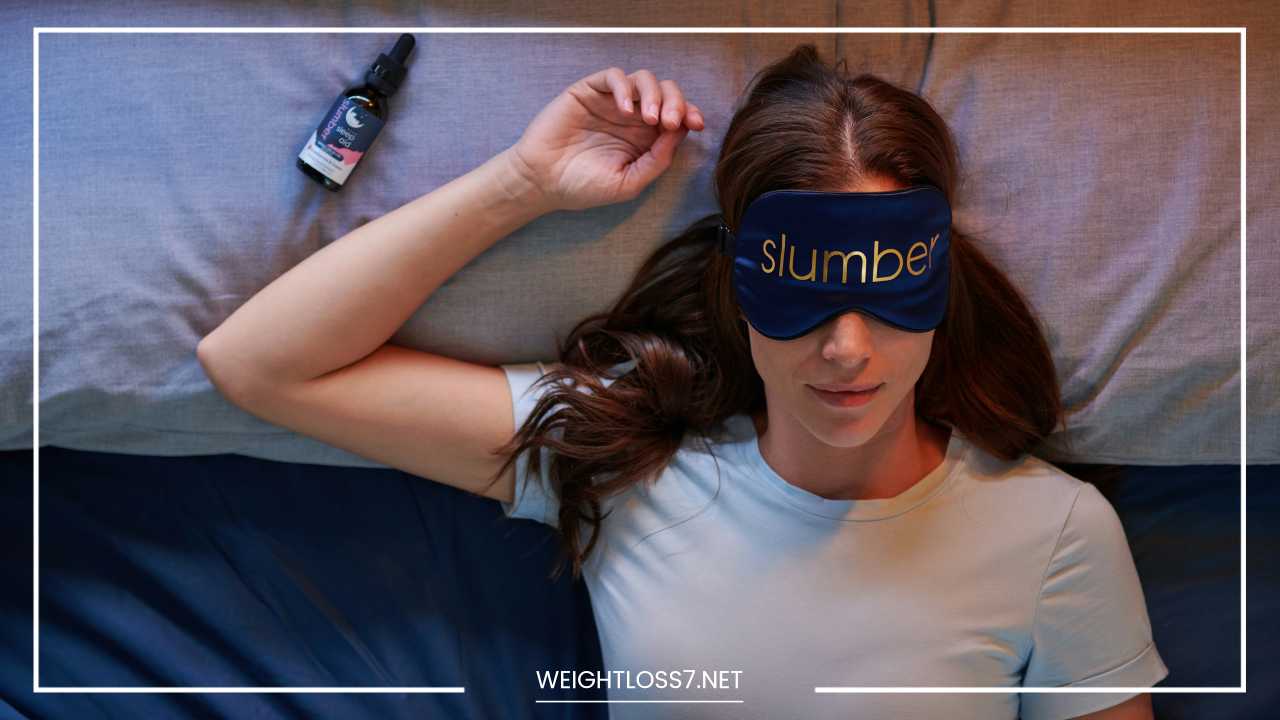How to Sleep Better

Sleep Better
How to Sleep Better: Achieve Restful Nights and Wake Up Feeling Refreshed
Sleep. It’s the golden ticket to a healthy life, yet so many of us struggle to achieve it consistently. A good night’s sleep is more than just feeling well-rested; it’s essential for physical and mental well-being, impacting everything from our mood and energy levels to our focus, immunity, and even weight.
If you’re one of the millions yearning for better sleep, you’re not alone. Studies from the National Sleep Foundation show that one-third of adults in the United States experience symptoms of insomnia each year.
But fret not! This comprehensive guide will equip you with a powerful arsenal of tips and tricks to transform your sleep hygiene and wake up feeling refreshed and ready to conquer your day.
Understanding Sleep: The Science Behind a Good Night’s Rest
Before diving into strategies, let’s delve into the fascinating science of sleep. Our sleep-wake cycle, governed by the internal clock (circadian rhythm), is influenced by light exposure.
During the day, sunlight suppresses the production of melatonin, a hormone that signals sleepiness. As darkness falls, melatonin production ramps up, making us feel drowsy.
There are four stages of sleep, each playing a crucial role in our overall well-being:
- Stage 1: A light sleep stage where brain activity slows down. It’s like dipping your toe into the water before taking a full plunge.
- Stage 2: A deeper sleep stage with even slower brain waves. This is where you spend most of your night (around 50% of sleep time).
- Stage 3: Deep sleep, essential for physical restoration and tissue repair. Growth hormone production is at its peak during this stage, promoting muscle growth and repair.
- REM (Rapid Eye Movement) Sleep: Characterized by rapid eye movements and increased brain activity, crucial for memory consolidation and emotional processing. It’s during REM sleep that we often experience dreams.
A healthy sleep cycle involves progressing through all four stages throughout the night, with deep sleep and REM sleep being the most restorative. Adults typically need between 7 and 9 hours of sleep per night to function at their best, but individual needs can vary.
Creating a Sleep Sanctuary: Optimize Your Bedroom Environment
Your bedroom should be a haven for sleep, promoting relaxation and tranquility. Here are some key elements to consider:
- Temperature: Aim for a cool environment, ideally between 65-68 degrees Fahrenheit (18-20 degrees Celsius). Our body temperature naturally dips slightly during sleep, and a cool environment facilitates this process.
- Light: Darkness is critical for melatonin production. Invest in blackout curtains or an eye mask to block out light from streetlamps, digital alarm clocks, or even the faint glow of electronics on standby mode.
- Noise: Silence is ideal, but if necessary, use earplugs or a white noise machine to mask disruptive sounds. White noise can be particularly helpful for blocking out intermittent noises like traffic or barking dogs.
- Comfort: Ensure your mattress and pillows provide proper support for your body. A supportive mattress that aligns your spine can significantly improve sleep quality. Consider investing in a good quality mattress and pillows if yours are old or uncomfortable. Experiment with different firmness levels and materials to find what works best for you.
- Cleanliness: Keep your bedroom clean and dust-free, especially if you suffer from allergies. A cluttered environment can be visually stimulating and make it harder to relax.
- Aromatherapy: Certain scents like lavender, chamomile, and valerian root have calming properties and may promote relaxation before bed. Consider using essential oil diffusers or lightly scented linens.
Sleep Hygiene Habits: Cultivating a Routine for Better Sleep
Developing a consistent sleep schedule is paramount for regulating your circadian rhythm. Go to bed and wake up at the same time each day, even on weekends.
This trains your body to anticipate sleep and wakefulness at specific times. Even a slight deviation from your sleep schedule can disrupt your sleep cycle and make it harder to fall asleep or wake up feeling refreshed.
Develop a Relaxing Bedtime Routine:
-
Wind down in the hour before bed: Dim the lights, avoid stimulating activities like watching TV or using electronic devices (the blue light emitted by electronic devices can suppress melatonin production). Engage in calming activities like reading a book, taking a warm bath with Epsom salts, or practicing relaxation techniques like deep breathing or meditation.
-
Create a sleep ritual: Repetitive actions signal to your body that it’s time to wind down. This could be taking a warm shower, listening to calming music, or spending a few minutes stretching or practicing gentle yoga poses.
-
Optimize your diet and exercise: Avoid heavy meals, sugary drinks, and caffeine close to bedtime. A heavy meal can disrupt digestion and make sleep uncomfortable. Sugary drinks can cause blood sugar spikes and crashes, leading to restless sleep. Caffeine is a stimulant that can stay in your system for hours, so avoid consuming caffeinated beverages like coffee, tea, and soda in the afternoon or evening.
-
Create a sleep-conducive diet: Focus on lighter meals rich in complex carbohydrates, lean protein, and healthy fats in the hours leading up to bedtime. These foods promote feelings of fullness and satisfaction without being heavy on the digestive system. Examples include oatmeal with berries, turkey with roasted vegetables, or salmon with brown rice.
-
Exercise regularly: Regular exercise is essential for good sleep, but avoid strenuous workouts right before bed as they can be stimulating. Aim for moderate-intensity exercise like brisk walking, swimming, or cycling earlier in the day.
-
Manage stress: Chronic stress can wreak havoc on your sleep. Practice stress-management techniques like yoga, meditation, or spending time in nature. Deep breathing exercises and progressive muscle relaxation can also be helpful in calming the mind and body before bed.
-
Limit naps: Long naps during the day can interfere with nighttime sleep. If you must nap, keep it short (20-30 minutes) and avoid napping late in the afternoon. Napping earlier in the day (before 3 pm) is less likely to disrupt your nighttime sleep.
-
Cognitive Behavioral Therapy for Insomnia (CBT-I): If you’ve tried these strategies and still struggle with insomnia, consider CBT-I. This form of therapy can be highly effective in addressing underlying causes of insomnia and teaching effective sleep strategies. CBT-I focuses on identifying and changing negative thoughts and behaviors that contribute to sleep problems.
Technology and Sleep: Finding the Balance
Our digital world can be a major sleep disruptor. The blue light emitted by electronic devices like smartphones, laptops, and tablets suppresses melatonin production and makes it harder to fall asleep. Here are some tips to minimize the impact of technology on your sleep:
- Power down electronics at least an hour before bed: The blue light emitted by electronic devices can interfere with sleep. Avoid using electronic devices in bed and create a technology-free zone in your bedroom.
- Night Shift mode: Many electronic devices have a built-in “night shift” mode that reduces blue light emissions in the evening. Enable this feature on your devices to minimize the impact of screen time on your sleep.
- Invest in blue light blocking glasses: These glasses can help to filter out blue light in the evening hours, making it easier to relax and fall asleep.
Light and Darkness: Optimizing Your Light Exposure
Light exposure plays a crucial role in regulating your circadian rhythm. Here’s how to leverage light to improve your sleep:
- Get morning sunlight: Aim for at least 30 minutes of natural sunlight exposure in the morning. This helps to suppress melatonin production and signals to your body that it’s time to wake up. Open your curtains as soon as you wake up or spend time outdoors in the morning sunlight.
- Dim the lights in the evening: Dim the lights in your home a few hours before bedtime. This helps to gradually increase melatonin production and prepare your body for sleep.
Listen to Your Body: Individualized Sleep Needs
While most adults need between 7 and 9 hours of sleep per night, individual needs can vary. Some people function well on 6 hours of sleep, while others require closer to 10 hours.
Pay attention to your body’s cues and how much sleep you need to feel rested and alert throughout the day. Don’t force yourself to adhere to a specific sleep schedule if it doesn’t work for you.
However, consistency is still important. Try to go to bed and wake up within the same hour window each day, even on weekends.
Addressing Specific Sleep Concerns
- Snoring and Sleep Apnea: Snoring can disrupt sleep for both the snorer and their partner. If you or your partner snores heavily, consult a doctor to rule out sleep apnea, a serious condition where breathing repeatedly stops and starts during sleep.
- Shift Work Sleep Disorder: If you work irregular hours, such as night shifts, you may experience difficulty sleeping. There are strategies to help manage shift work sleep disorder, such as maintaining a consistent sleep schedule as much as possible, exposing yourself to bright light during waking hours, and avoiding caffeine and alcohol before bed.
- Restless Legs Syndrome (RLS): This condition is characterized by an irresistible urge to move your legs, often accompanied by uncomfortable sensations. RLS can interfere with sleep. If you suspect you have RLS, consult a doctor for diagnosis and treatment options.
Final Word: A Well-Rested You is a Healthier, Happier You
By prioritizing sleep hygiene and implementing the strategies outlined in this guide, you can transform your sleep habits and wake up feeling refreshed and ready to tackle the day.
Remember, a good night’s sleep is an investment in your overall health and well-being. Here are some concluding thoughts to keep in mind:
-
Be Patient: Changing your sleep habits takes time and consistency. Don’t get discouraged if you don’t see results immediately. Stick with the strategies you’ve chosen and be patient with yourself.
-
Seek Professional Help: If you’ve tried these tips and still struggle with sleep problems for an extended period, consult a doctor or sleep specialist. They can help identify any underlying medical conditions that might be affecting your sleep and recommend appropriate treatment options.
-
The Power of a Positive Mindset: Approach sleep with a positive attitude. Focus on creating a relaxing bedtime routine and view sleep as a necessary investment in your health and happiness.
-
Celebrate Your Achievements: As you improve your sleep quality, acknowledge your progress. Celebrate the nights you fall asleep easily and wake up feeling refreshed.
A good night’s sleep is within your reach. By making sleep a priority and implementing the strategies outlined in this comprehensive guide, you can unlock a world of benefits, from improved mood and energy levels to better focus, stronger immunity, and a healthier weight. So, switch off the screens, dim the lights, and embrace the power of sleep. Sweet dreams!

















